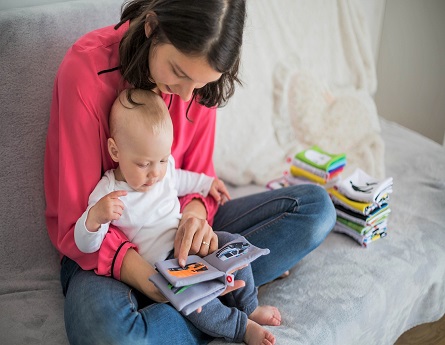Rewriting the Rules of Parenthood: How Couples Are Planning Smarter
 Parenthood is evolving, and couples are leading the change. Instead of rushing into it, they’re taking time to reflect, plan, and prepare in ways that fit their unique lives.
Parenthood is evolving, and couples are leading the change. Instead of rushing into it, they’re taking time to reflect, plan, and prepare in ways that fit their unique lives.
In cities like Los Angeles, where balancing careers, lifestyle, and expenses is a daily challenge, this thoughtful approach is becoming the new normal. Couples are finding smarter ways to build families while staying true to their personal goals.
Below, we explore how today’s parents are rewriting the playbook with intention, shared responsibility, and clear planning.
1. Delaying Parenthood for Career and Personal Growth
One of the most noticeable changes is the decision to wait. Couples today are prioritizing education, professional advancement, and personal development before starting a family. This shift allows both partners to build a stable foundation, ensuring they have the emotional and financial resources to raise a child responsibly.
Many couples see this delay not as hesitation, but as a smart investment in their future family’s well-being. It’s a trend especially evident in competitive urban environments, where opportunities are abundant but require significant time and commitment. Planning smarter means choosing the right time for parenthood, not just the expected time.
2. Open Conversations About Roles and Responsibilities
Gone are the days of unspoken assumptions about who does what. Today’s couples are having real conversations about parenting roles before their child arrives. From who handles night feedings to how parental leave is divided, these dialogues help set expectations early on.
Smart planning involves ensuring both partners feel equally supported and valued in their parenting journey. These talks often extend to childcare, household duties, and emotional support, creating a more balanced dynamic from the start. This proactive communication helps reduce future stress and lays the groundwork for strong co-parenting, even in the most demanding family environments.
3. Financial Preparation and Lifestyle Adjustments
Raising children is expensive, especially in major metro areas. That’s why many couples are focusing on financial health before expanding their families. Budgeting, paying off debt, securing insurance, and even starting college funds early are all part of the modern parenting strategy.
In high-cost cities, couples are rethinking everything from housing choices to daily expenses to make room for future family life. Some even consult financial planners specifically for family-related goals. Being financially prepared not only reduces stress but also creates more opportunities, like being able to afford quality childcare or a flexible work schedule.
4. Considering Long-Term Family Planning Options
More couples today are thinking beyond just having “a baby” and focusing on their entire reproductive journey. This means deciding how many children they want, the ideal spacing, and the resources needed to support those plans. Permanent solutions, like a vasectomy in Los Angeles, which is done without needles or scalpels, are becoming part of the conversation, especially for couples who feel their family is complete.
Working with a skilled vasectomy specialist ensures the procedure is safe, minimally invasive, and tailored to each individual’s needs. Open conversations about long-term family planning help couples stay aligned and avoid surprises along the way.
5. Embracing Reproductive Planning Tools
Technology has made it easier than ever for couples to plan their parenthood journey. From fertility tracking apps to egg freezing, many are using science to gain more control over timing. Fertility preservation is no longer reserved for medical necessity—it’s become a proactive step for those not ready but who want the option later.
Sperm banking, IVF consultation, and genetic testing are also increasingly common. By leveraging these tools, couples avoid feeling rushed by biology and instead make informed choices. This shift represents a smarter, more empowered approach to starting a family when the time truly feels right.
6. Exploring Alternative Paths to Parenthood
Not all couples follow the traditional biological route. Adoption, fostering, and surrogacy are gaining traction as smart, meaningful alternatives to expanding a family. This broadening definition of parenthood allows couples to consider their values, health, and lifestyle when deciding how they want to raise children.
For some, these paths offer a chance to give a child in need a loving home. For others, medical or personal reasons make these options the most suitable. Regardless of the motivation, couples are approaching these choices with intention and care—another clear sign that the parenting playbook is being rewritten.
7. Making Mental Health a Priority
Parenthood isn’t just a physical or financial commitment—it’s an emotional one too. That’s why more couples are prioritizing mental health as part of their planning process. This can include individual or couples therapy, stress management strategies, and even mindfulness practices.
Preparing mentally for the pressures of parenting can strengthen relationships and help prevent issues like postpartum depression or burnout. In urban centers, where life moves quickly, creating a mental health plan is often considered just as important as preparing a nursery. It’s a holistic approach that reflects a more thoughtful, modern view of what it takes to raise a child.
Conclusion
As societal expectations evolve, so too does the journey into parenthood. By prioritizing intentional planning, modern couples are not just adapting — they’re taking control of their futures. This smarter, more strategic approach is helping redefine what it means to start a family on their own terms.